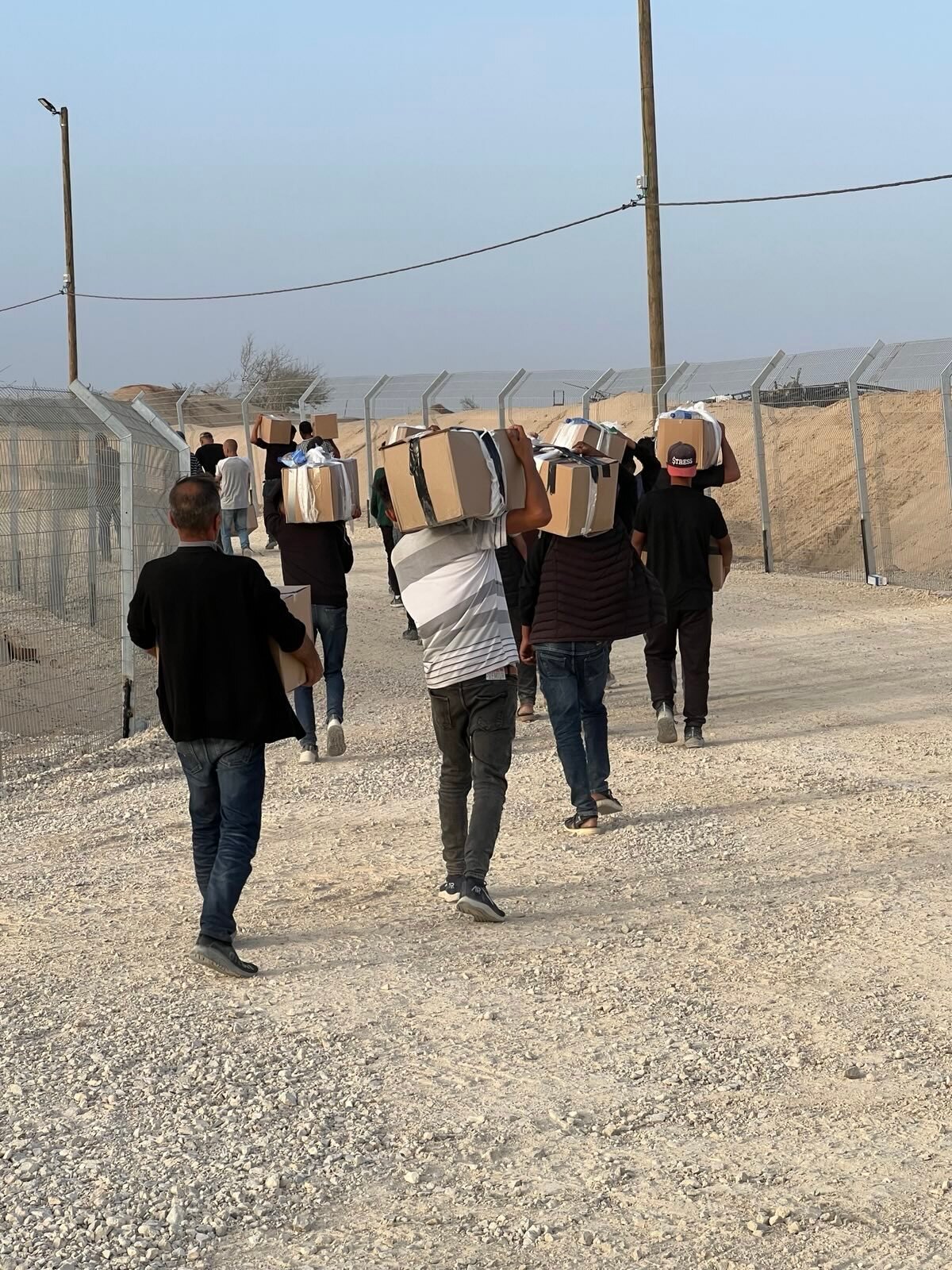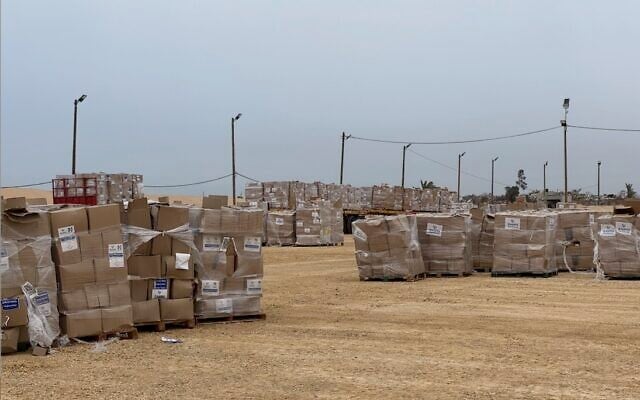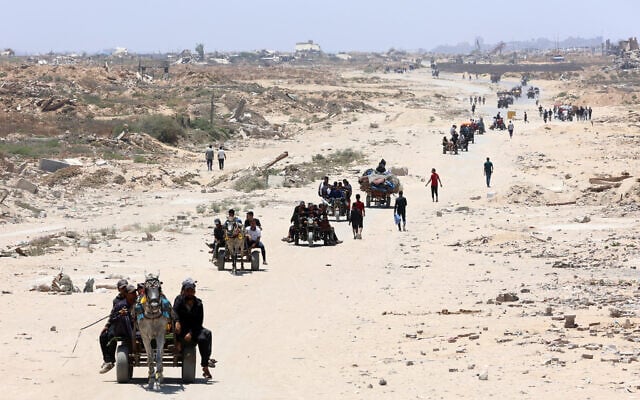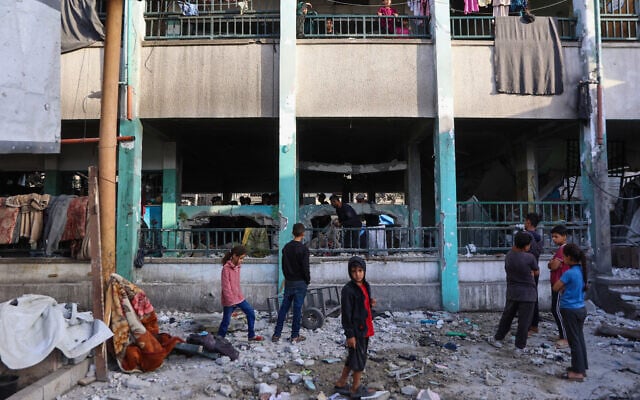



The Gaza Humanitarian Foundation (GHF) said it commenced operations in the Gaza Strip on Monday, delivering truckloads of food to newly established distribution sites, from which the supplies were then distributed to a number of Palestinians.
The announcement followed Hebrew media reports claiming that the US- and Israel-backed GHF did not manage to begin operating in Gaza on Monday as initially planned.
The GHF statement did not specify how much aid was distributed, but it did include photos of a number of Gazans picking up boxes of aid from a distribution site. It said more trucks will be delivered on Tuesday and that the flow of aid will increase each day.
The foundation made a point to condemn what it said have been Hamas death threats against aid groups who have agreed to cooperate with GHF, as well as efforts to block Palestinians from reaching distribution sites.
“It is clear that Hamas is threatened by this new operating model, and will do everything in its power to see it fail,” GHF said.
GHF also announced that John Acree has been named its interim executive director, after its previous chief resigned on Sunday and indicated that Israeli restrictions were preventing the initiative from being able to adhere to humanitarian principles.
Acree is a “senior humanitarian practitioner with more than two decades of global field experience in disaster response, stabilization programming, and civil-military coordination,” GHF said.
While technically an American company, GHF was established earlier this year in close coordination with Israeli authorities who felt existing aid distribution mechanisms led by the UN and other international organizations were insufficient in preventing the diversion of aid by Hamas.
Israel wanted to create a small number of distribution sites where pre-selected familial representatives would be able to pick up a heavy box full of food for their families in a zone secured and operated by American private contractors.
GHF still needs support and cooperation from existing humanitarian organizations, as it seeks to gain credibility on the ground. That backing has yet to come, though, with the UN and many other international organizations in Gaza vowing not to cooperate with the GHF, arguing that its aid initiative violates humanitarian principles by requiring Gazans to walk long distances in order to retrieve aid and limiting distribution to southern Gaza, in what would forcibly displace the Palestinian population.
UN officials have also raised concerns that the organization could be used to “weaponize” aid by restricting who is eligible to receive it.
A small number of lesser-known organizations have agreed to cooperate with the GHF thus far, including the US-based aid group Rahma Worldwide, whose logo was seen in the photos of boxes being distributed to Gazans on Monday.
GHF says it is made up of former humanitarian, government and military officials. It has said its distribution points — three in southern Gaza and one in central Gaza — will be guarded by private security firms and that its aid will reach a million Palestinians — around half of Gaza’s population — by the end of the week.
Under pressure from allies, Israel began allowing a trickle of humanitarian aid into Gaza last week after blocking all food, medicine, fuel or other goods from entering since March 2. Aid groups have warned of famine and say the aid that has come in is nowhere near enough to meet mounting needs.
Hamas warned Palestinians on Monday not to cooperate with the new aid system, saying it is aimed at furthering those objectives.
Earlier Monday, Hamas executed four men it claimed had looted some of the aid trucks that have begun entering Gaza, according to sources familiar with the incident.
One source said the four were involved in an incident last week in which six security officials were allegedly killed by an Israeli airstrike as they were working to prevent gang members from hijacking aid trucks.
Aid groups have said that deliveries have been hampered by looting, claiming Israel is to blame for creating a situation in which hundreds of thousands of people have been driven to desperation by aid blockade.
Israel has accused Hamas of stealing aid, and says aid needs to be tightly controlled to prevent it from helping the terror group.
Gaza’s health ministry said Monday that at least 3,822 people had been killed in the territory since the latest ceasefire collapsed on March 18, taking the war’s overall toll to 53,977 — a figure that cannot be verified and does not differentiate between civilians and fighters.
The war broke out on October 7, 2023, when Hamas-led terrorists invaded Israel, killing some 1,200 people, mostly civilians, and kidnapping 251. Terror groups in the Gaza Strip are still holding 58 hostages, including 57 of the 251 abducted on October 7.
Agencies contributed to this report.



